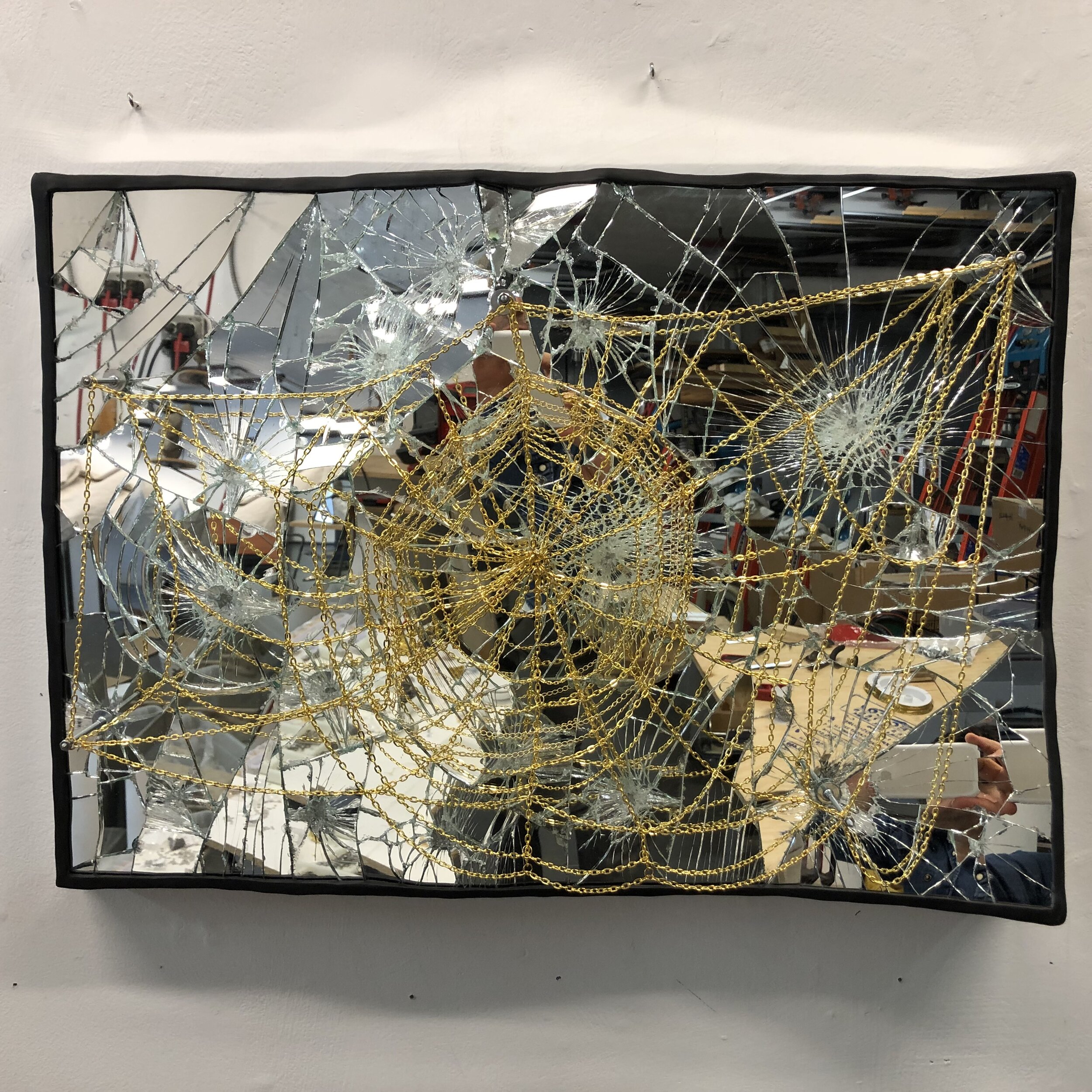In the Studio with Graham Caldwell
My practice is concerned with the elasticity of sight, and the way visual perception constructs and distorts the immediate external world. The Russian Formalists used the term “defamiliarization” to describe an alienating effect in literature that imparts a vividness to the work of art. I attempt to apply this concept to the visual realm.
I am interested in the historic and intrinsic association between glass and the act of looking, from the early lenses that allowed glimpses into the microscopic world, to the eyeglasses, ubiquitous windows, and mirrors inside telescopes that let us to peer into space. Much of my work focuses on glass as a conduit or modulating agent for light and its parallel in the functionality of the human eye: using a lens to flip an image of the world, upside down and backwards, into the brain where it is reassembled, through illusion and forensics.
Making art in the time of self-isolation
I fled NYC along with my wife and dog in early March and have been riding out the pandemic with my parents in a remote part of DC. I have been back to Brooklyn a few times to gather materials from my studio and to make sure nothing has become infested or caught fire. Daily life has contracted and become about basics—stay sane and stay alive.
My art-making practice has been miniaturized and distilled, from equipped studio to table top in a shared room where I spend my days working small. Instead of my normal media—which requires space, hi-amp electrical equipment, and ventilation—I’ve been painting, drawing, making spiderwebs out of gold-plated chains, etc. I am fine-tuning the design in PhotoShop of a large upcoming project before I begin fabricating it. The most exciting prospect for me is that I am making plans to set up a glass-blowing studio, complete with ovens and a furnace full of molten glass.
Untitled (chain web on mirror), 2020, 18x24x4 inches, mirror, epoxy, gold plated chain, and hardware
Untitled (Compound Eye Commission), 2019, 96x96x4 inches, mirrors and welded steel
Studio Portrait
Mirror Sphere Portrait
Untitled (clearglobes_acrylic_circles), 2019, 22x20x20 inches, solid glass, welded steel, acrylic
Convex Dichroic Box, 2018, 24x18x5 inches, slumped and mirrored glass, dichroic film, and epoxy










